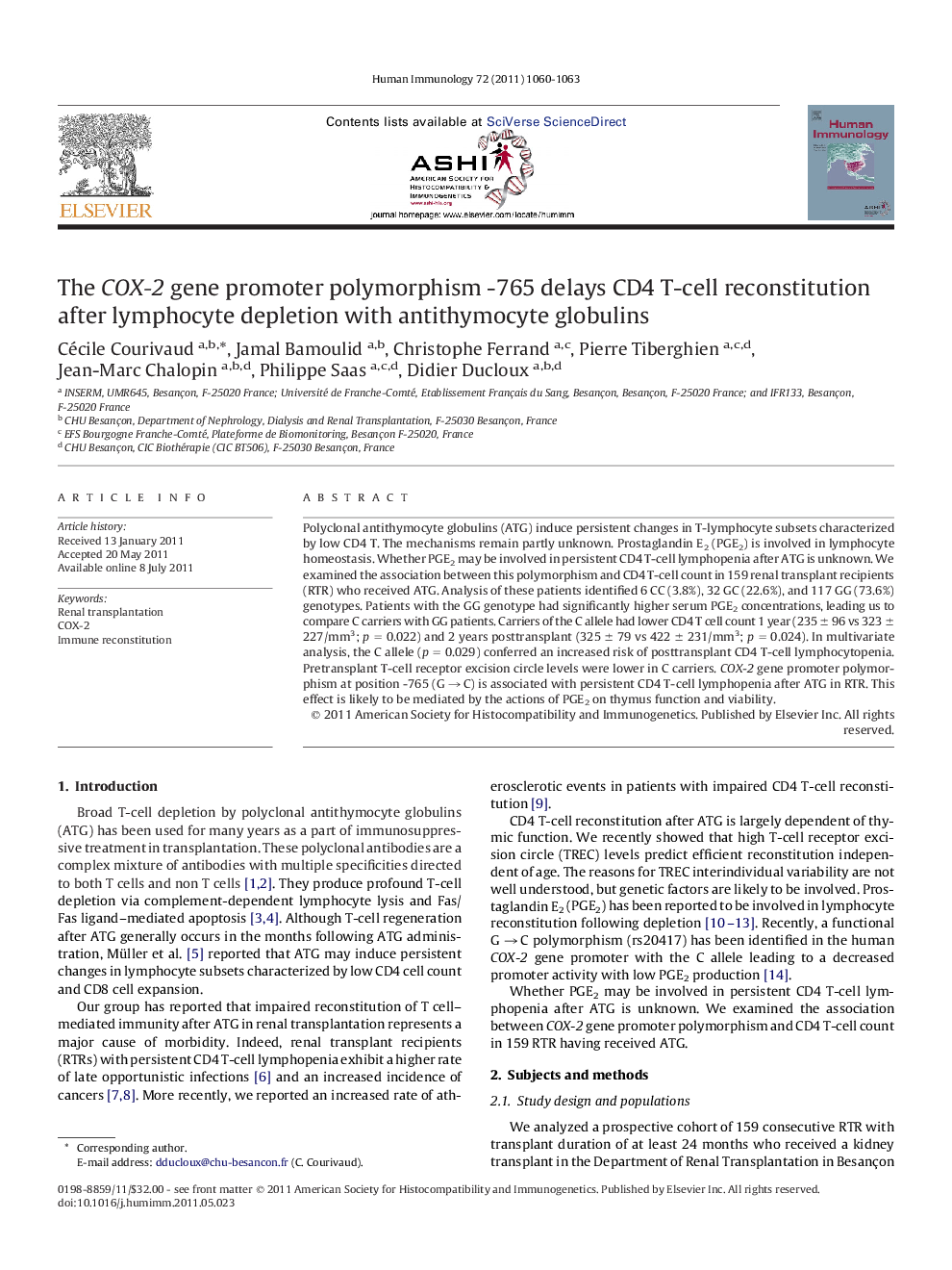| Article ID | Journal | Published Year | Pages | File Type |
|---|---|---|---|---|
| 3351315 | Human Immunology | 2011 | 4 Pages |
Abstract
Polyclonal antithymocyte globulins (ATG) induce persistent changes in T-lymphocyte subsets characterized by low CD4 T. The mechanisms remain partly unknown. Prostaglandin E2 (PGE2) is involved in lymphocyte homeostasis. Whether PGE2 may be involved in persistent CD4 T-cell lymphopenia after ATG is unknown. We examined the association between this polymorphism and CD4 T-cell count in 159 renal transplant recipients (RTR) who received ATG. Analysis of these patients identified 6 CC (3.8%), 32 GC (22.6%), and 117 GG (73.6%) genotypes. Patients with the GG genotype had significantly higher serum PGE2 concentrations, leading us to compare C carriers with GG patients. Carriers of the C allele had lower CD4 T cell count 1 year (235 ± 96 vs 323 ± 227/mm3; p = 0.022) and 2 years posttransplant (325 ± 79 vs 422 ± 231/mm3; p = 0.024). In multivariate analysis, the C allele (p = 0.029) conferred an increased risk of posttransplant CD4 T-cell lymphocytopenia. Pretransplant T-cell receptor excision circle levels were lower in C carriers. COX-2 gene promoter polymorphism at position -765 (G â C) is associated with persistent CD4 T-cell lymphopenia after ATG in RTR. This effect is likely to be mediated by the actions of PGE2 on thymus function and viability.
Related Topics
Life Sciences
Immunology and Microbiology
Immunology
Authors
Cécile Courivaud, Jamal Bamoulid, Christophe Ferrand, Pierre Tiberghien, Jean-Marc Chalopin, Philippe Saas, Didier Ducloux,
